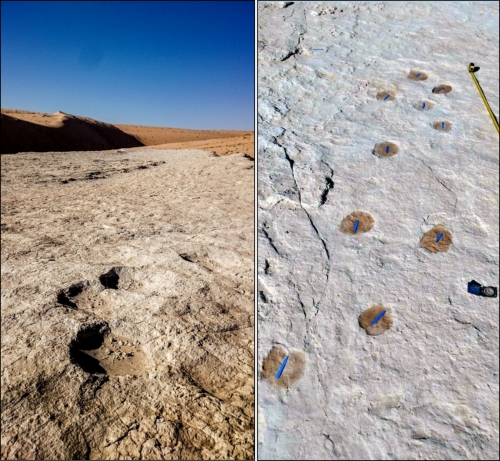First evidence of human life on the Arabian Peninsula uncovered by archaeologists in Saudi Arabia
RIYADH
The first evidence of human life on the Arabian Peninsula uncovered by archaeologists in Saudi Arabia
Archaeologists have uncovered ancient human and animal footprints, dating back more than 120,000 years, in Tabuk, northern Saudi Arabia.
The discovery marks the first scientific evidence of human life on the Arabian Peninsula.
“The Kingdom boasts some of the region’s richest heritage spanning thousands of years, and this discovery demonstrates what can be learned from Saudi Arabia’s diverse landscape”, Jasir Alherbish, Heritage Commission CEO, Ministry of Culture, Saudi Arabia.
A group of Saudi and international archaeologists supported by the Kingdom’s Heritage Commission has uncovered ancient human and animal footprints, dating back more than 120,000 years, in Tabuk, northern Saudi Arabia. The groundbreaking discovery represents the first scientific evidence of human life on the Arabian Peninsula, providing a rare glimpse into the ancient ecosystem that existed alongside the area’s human inhabitants.
The discovery was made by the Green Arabia Project – a joint collaboration between Germany’s Max Planck Institute for the Science of Human History, the University of Oxford in the United Kingdom, the University of Queensland in Australia, King Saud University in Riyadh, the Saudi Geological Survey and Aramco, overseen by the Heritage Commission. The Green Arabia Project focuses on the prehistory of the Arabian Peninsula, studying the impact of the changing environment on human and animal life.
Related Posts

